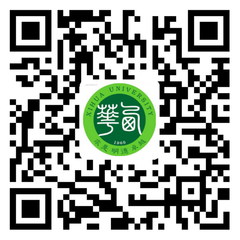報告題目1:The negative effects of the US-China trade war on innovation: Evidence from the Chinese ICT industry
報告題目2:Voluntary Environmental Regulation and Corporate Energy Technology Innovation: The Case of ESG Ratings
報告時間:2024年4月25日16:00
報告地點:1A4036;騰訊會議(會議號:480294490)
報告人:浙江工商大學(xué)繆嘉峰;西華大學(xué)經(jīng)濟(jì)學(xué)院屈放
主辦單位:經(jīng)濟(jì)學(xué)院
報告人簡介:
繆嘉峰,浙江工商大學(xué)經(jīng)濟(jì)學(xué)在讀博士研究生,研究方向為技術(shù)創(chuàng)新、資源與環(huán)境經(jīng)濟(jì)學(xué)。目前,已發(fā)表1篇ESI熱點論文,3篇ESI高被引論文,10余篇SCI/SSCI論文,主持參與國家自然科學(xué)基金等國家級、省部級課題十余項。
屈放,西華大學(xué)經(jīng)濟(jì)學(xué)院教師,經(jīng)濟(jì)學(xué)博士,碩士生導(dǎo)師,研究方向為能源經(jīng)濟(jì)理論與政策,技術(shù)創(chuàng)新及偏向,能源金融。目前,已發(fā)表2篇ESI高被引論文,10余篇SCI/SSCI論文,主持參與國家自然科學(xué)基金等國家級、省部級課題多項。
內(nèi)容簡介:
報告1:越來越多的國家逐漸意識到領(lǐng)先的創(chuàng)新能力在世界市場競爭中的重要性,其中,信息與通信技術(shù)(ICT)行業(yè)的創(chuàng)新能力,作為刺激新時代生產(chǎn)力革命及科技發(fā)展的重要手段受到了各國政府的廣泛關(guān)注。本文將中美貿(mào)易戰(zhàn)作為準(zhǔn)自然實驗,采用雙重差分法,實證分析其對中國ICT行業(yè)技術(shù)創(chuàng)新的影響。結(jié)果發(fā)現(xiàn),中美貿(mào)易戰(zhàn)對ICT企業(yè)的技術(shù)創(chuàng)新產(chǎn)生了顯著的負(fù)向影響,主要表現(xiàn)為增加企業(yè)的運營成本,且貿(mào)易戰(zhàn)的負(fù)面影響遠(yuǎn)大于反向激勵效應(yīng)帶來的正面影響。此外,ICT企業(yè)技術(shù)創(chuàng)新水平的下降主要是由于技術(shù)含量最高的發(fā)明專利申請量減少所導(dǎo)致創(chuàng)新效率的降低,并非研發(fā)投入的變化。在中美貿(mào)易戰(zhàn)中,低融資約束企業(yè)和民營企業(yè)受到的影響更為顯著。由此可見,中美貿(mào)易戰(zhàn)抑制中國高科技企業(yè)發(fā)展的意圖已經(jīng)在一定程度上實現(xiàn),這就需要中國政府采取相應(yīng)的對策以降低影響。
報告2:Contending corporate environmental, social, and governance (ESG) rating as a form of voluntary environmental regulation, this study investigates how ESG rating coverage affects firm’s energy technology innovation. We employ a staggered Difference-in-Differences approach and analyse energy technology patents and the financial data from Chinese listed firms between 2007 to 2019. Our results show that ESG rating coverage significantly promotes the firm’s energy technology innovation, particularly renewable energy technology. We further explore possible mechanisms and argue that ESG rating coverage motivates firms to commit to strategic and substantive energy technology innovation, as opposed to symbolic and cosmetic behaviours to elevate its ‘green image’. Further analysis shows that uncertainty in ESG ratings undermines the promotion effect on renewable energy technologies, whereas the impact of intellectual property protection is contrary.
歡迎全校師生參加!












 川公網(wǎng)安備 51010602000503號
川公網(wǎng)安備 51010602000503號